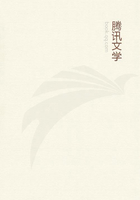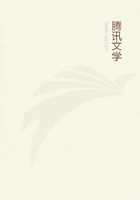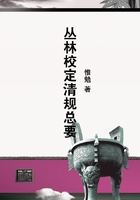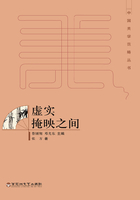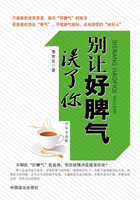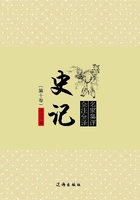The deeper one pursues religious thought the more nearly it approximates to a search for escape from the self-centred life and over-individuation, and the more it diverges from Professor Metchnikoff's assertion of its aims. Salvation is indeed to lose one's self. But Professor Metchnikoff having roundly denied that this is so, is then left free to take the very essentials of the religious life as they are here conceived and present them as if they were the antithesis of the religious life. His book, when it is analysed, resolves itself into just that research for an escape from the painful accidents and chagrins of individuation, which is the ultimate of religion.
At times, indeed, he seems almost wilfully blind to the true solution round and about which his writing goes. He suggests as his most hopeful satisfaction for the cravings of the human heart, such a scientific prolongation of life that the instinct for self-preservation will be at last extinct. If that is not the very "resignation" he imputes to the Buddhist I do not know what it is.
He believes that an individual which has lived fully and completely may at last welcome death with the same instinctive readiness as, in the days of its strength, it shows for the embraces of its mate. We are to be glutted by living to six score and ten. We are to rise from the table at last as gladly as we sat down. We shall go to death as unresistingly as tired children go to bed. Men are to have a life far beyond the range of what is now considered their prime, and their last period (won by scientific self-control) will be a period of ripe wisdom (from seventy to eighty to a hundred and twenty or thereabouts) and public service!
(But why, one asks, public service? Why not book-collecting or the simple pleasure of reminiscence so dear to aged egotists?
Metchnikoff never faces that question. And again, what of the man who is challenged to die for right at the age of thirty? What does the prolongation of life do for him? And where are the consolations for accidental misfortune, for the tormenting disease or the lost limb?)But in his peroration Professor Metchnikoff lapses into pure religiosity. The prolongation of life gives place to sheer self-sacrifice as the fundamental "remedy." And indeed what other remedy has ever been conceived for the general evil of life?
"On the other hand," he writes, "the knowledge that the goal of human life can be attained only by the development of a high degree of solidarity amongst men will restrain actual egotism. The mere fact that the enjoyment of life according to the precepts of Solomon (Ecelesiastes ix. 7-10)* is opposed to the goal of human life, will lessen luxury and the evil that comes from luxury. Conviction that science alone is able to redress the disharmonies of the human constitution will lead directly to the improvement of education and to the solidarity of mankind.
* Go thy way, eat thy bread with joy, and drink thy wine with a merry heart; for God now accepteth thy works. Let thy garments be always white; and let thy head lack no ointment. Live joyfully with the wife whom thou lovest all the days of the life of thy vanity, which he hath given thee under the sun, all the days of thy vanity for that is thy portion in this life, and in thy labour which thou takest under the sun. whatsoever thy hand findeth to do, do it with thy might; for there is no work, nor device, nor knowledge, nor wisdom, in the grave, whither thou goest.
"In progress towards the goal, nature will have to be consulted continuously. Already, in the case of the ephemerids, nature has produced a complete cycle of normal life ending in natural death.
In the problem of his own fate, man must not be content with the gifts of nature; he must direct them by his own efforts. Just as he has been able to modify the nature of animals and plants, man must attempt to modify his own constitution, so as to readjust its disharmonies. . . .
"To modify the human constitution, it will be necessary first, to frame the ideal, and thereafter to set to work with all the resources of science.
"If there can be formed an ideal able to unite men in a kind of religion of the future, this ideal must be founded on scientific principles. And if it be true, as has been asserted so often, that man can live by faith alone, the faith must be in the power of science."Now this, after all the flat repudiations that have preceded it of "religion" and "philosophy" as remedies for human ills, is nothing less than the fundamental proposition of the religious life translated into terms of materialistic science, the proposition that damnation is really over-individuation and that salvahon is escape from self into the larger being of life. . . .
What can this "religion of the future" be but that devotion to the racial adventure under the captaincy of God which we have already found, like gold in the bottom of the vessel, when we have washed away the confusions and impurities of dogmatic religion? By an inquiry setting out from a purely religious starting-point we have already reached conclusions identical with this ultimate refuge of an extreme materialist.
This altar to the Future of his, we can claim as an altar to our God--an altar rather indistinctly inscribed.
2. SACRIFICE IMPLIES GOD
Almost all Agnostic and Atheistical writings that show any fineness and generosity of spirit, have this tendency to become as it were the statement of an anonymous God. Everything is said that a religious writer would say--except that God is not named. Religious metaphors abound. It is as if they accepted the living body of religion but denied the bones that held it together--as they might deny the bones of a friend. It is true, they would admit, the body moves in a way that implies bones in its every movement, but --WEHAVE NEVER SEEN THOSE BONES.

